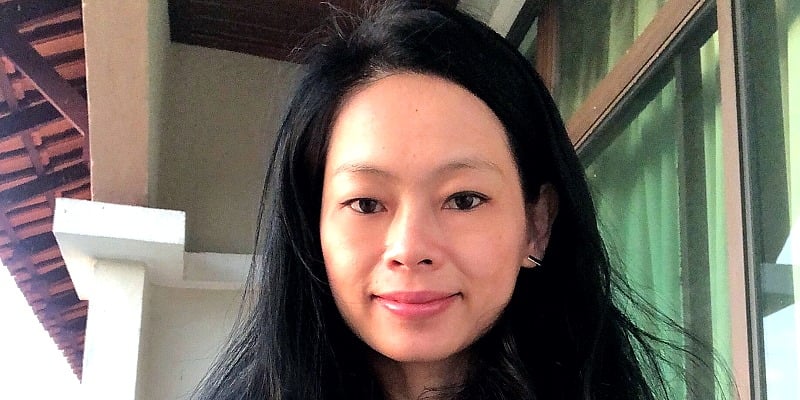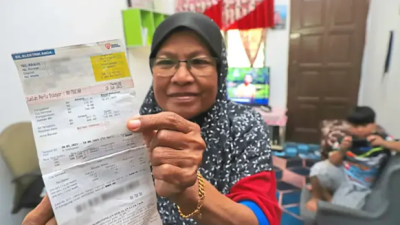
Last month, I was invited to deliver a presentation on women, peace and security (WPS) at the International Forum on Women, Peace and Sustainable Security: Lessons from the Field.
This forum was co-organised by the International Institute of Islamic Thought and Civilization, International Islamic University Malaysia (ISTAC-IIUM), with the Embassy of Belgium in Kuala Lumpur.
The forum provides an opportunity for discussion on the challenges facing WPS, especially in the Southeast Asia region.
The WPS agenda is not new in the international context. However, it might be not common for many in the national and local context.
This year marks the 22nd anniversary of the UN Security Council’s landmark resolution 1325 on WPS, which was adopted in 2000.
The WPS agenda is a significant milestone that promised mainstream attention to women’s perspectives on and experiences of war, peace and security to ensure full, equal and meaningful participation of women at all decision-making levels for maintaining and promoting peace and security.
Resolution 1325 also recognizes the suffering of women and girls in violent contexts, armed conflicts and post-conflict situations.
It also affirms the important role of women in preventing and resolving disputes and peace-building initiatives.
Generally, it ensures women’s overall engagement in societal development.
The Defense White Paper (DWP) that the Malaysian government released in December 2019 contains the direction and priorities of defense for ten years from 2021 to 2030, spanning the 12th and 13th Malaysia Plans.
However, the mention of Resolution 1325 is only found on page 57 of the lengthy document concerning female participation in the workforce in the efforts by the government to achieve 10 per cent of women in the Malaysian Armed Forces (MAF).

All ASEAN member states, including Malaysia, have structures and mechanisms to advance women’s human rights at the regional level.
Further, all ASEAN member states are parties to the Convention on the Elimination of all Forms of Discrimination Against Women (CEDAW).
They have likewise enshrined and sought to guarantee the rights outlined in CEDAW through regional declarations and mechanisms.
However, ASEAN member states have largely failed to uphold their obligations under these mechanisms regarding acknowledging women’s human rights in conflict situations.
As we know, the ASEAN launched the ASEAN Regional Study on Women, Peace and Security on 8 March, 2021, on International Women’s Day, to prepare the Regional Plan of Action on Advancing Women, Peace and Security being planned for 2021-2022.
This is an excellent step to reaffirm the commitment to move from “recognition” of the importance of women’s participation in peace-building, conflict prevention and conflict resolution to its “realization” in the region, where conflict and security challenges vary widely across member states.
Malaysia has committed to the WPS agenda in dialogues and statements on several occasions.
One recent statement was made at the United Nations in New York on International Women’s Day.
In the statement delivered by H.E. Syed Mohamad Hasrin Aidid, Permanent Representative of Malaysia to the United Nations, at the Security Council Debate on “Advancing the Women, Peace and Security Agenda Through Partnerships: Women’s Economic Inclusion and Participation as a Key to Building Peace” on 8 March 2022, I quote, “At the regional level, recognizing the transformative roles that women fulfill in building, maintaining, and fostering peace and security in the region, ASEAN is currently developing the Regional Plan of Action on Women, Peace, and Security, with the support of the US Agency for International Development (USAID) and UN Women.
“As part of our continued commitment to WPS and the implementation of the Security Council resolution 1325, Malaysia is also preparing its National Action Plan on WPS.”
During the forum attended by different stakeholders, including government and non-government actors, all welcome and advocated for Malaysia to establish its extended overdue action plan on WPS.
The statement delivered by the Malaysia representative at the UN is a good step. Still, more public participation and discourse are required on the WPS to ensure it does not remain only a commitment verbally, instead implement it with steps to follow.
Hence, it is hoped that such an initiative should be activated progressively with a multi-stakeholder approach to make this a reality, while at the same time, without an action plan there is also a need to mainstream the role of women in the agenda of peace and security on a more regular basis with meaningful participation.
WPS is not just a government agenda or with international organisations; it has to be localized.
In moving this forward, we should recognize that partnership between the state and civil society is crucial to realize the WPS agenda.
This partnership essentially means power-sharing over the decision-making process.
On the one hand, a better public policy emerges that considers the needs of communities; on the other hand, the communities become interested agents in implementing the jointly developed procedures.
(Khoo Ying Hooi is Universiti Malaya Senior Lecturer.)
ADVERTISEMENT
ADVERTISEMENT



































